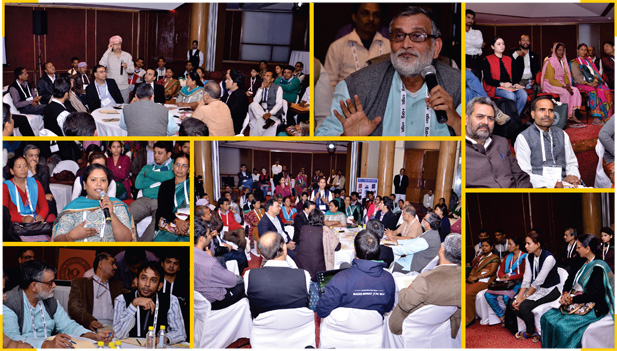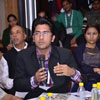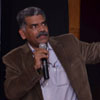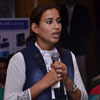National Digital Panchayat Summit

Session Focus
- To build a strong case & compelling advocacy for maximizing adoption of wireless technologies for rural empowerment and enable delivery of content and services to reach masses.
- How panchayats can become two-way platform to provide e-governance services through digital inclusion?
- How to improve efficiency and functioning of Panchayats with information and content resource platform?
- Using digital Panchayats to facilitate deployment of rural citizen services delivery through digital means;
- Roadmap to generate social, cultural and economic advantages for every Panchayat with a two way information and content gateway.
Summit Proceedings
The summit was formed in a discussion-oriented format sharing the case studies around wireless network deployment and operations in India. The focus of the summit is to empower 250,000 gram panchayats by enabling them digitally. The summit also focused on making the Panchayats two-way information and content. The Summit aims to understand how panchayats can be empowered with information and content architecture created in the Web and training Panchayat people on ICT and new media tools. The Summit also aimed to reflect that effective use of ICT media tools can help them in bringing transparency and accountability at ground level. The Keynote Address was given by Mr. Sushil Kumar, Joint Secretary, the Ministry of Panchayati Raj and moderated by Mr. Osama Manzar, Founder Director, DEF.
Moderator: Osama Manzar, Founder & Director, DEF
Panelists





- Sushil Kumar, Joint Secretary (e-Panchayat), Ministry of Panchayati Raj, Government of India
- Kamal Taori, (IAS Retd), Ex-member, Planning Commission of India, Wardha, Maharashtra
- Deepak Chandra Misra, Rural Development and Panchayatiraj, NIC
- Dr. Rajneesh Ashthana, Deputy Director, NIELIT, MoC&IT
- Dr Sumant Pande, Asso. Professor, State institute of Rural Development, YASHADA, Pune
- Surender Singh Rana, Practice Partner, Wipro Consulting Services
- Mahesh Venkteshwaran, Principal- Innovation & Engagement, NSDC
- Chintan Raj, PM Fellow, Ministry of Rural Development, GOI
Mr. Manzar, Founder & Director, DEF initiated the session by asking people from audience to share their views on basic need of their panchayats and what government can do in making their panchayats digitally enabled. Mr. Manzar introduced Rakhi Paliwal, Vice President of Upli-Oden and asked her to share her panchayat challenges and what are needs of her panchayats.
In a reply, Rakhi Paliwal when she was elected as Panchayat representative, she had a fear how to go ahead on the development of panchayat. Gradually, she started learning about panchayat chapters and how these chapters work locally. To make panchayat visible, Rakhi shared that she started using Facebook for sharing her panchayat news and stories. Through Facebook, villagers started sharing their challenges and issues with district collector about their villages. Thus, Facebook became a platform where villagers can share their problems and challenges; however, it became difficult for collector to solve each issue. Now, District Collector has its own Facebook pate and now villagers are directly contacting him for their concerns. These kind of digital tools such as Facebook, Whats App, e-mail, etc also save time and made our life easier for them.
Thereafter, Mr. Manzar turned towards Mr. Raghvendra Singh, who is Patwari at Indore and asked him to share what local governance issues. In reply, Mr. Singh described that initiatives are happening at silos and not together. He emphasized that there is need to have holistic approach towards empowering panchayats. For example, Babajob.com brings employability services for range of human resources from engineer to peon. Thus, there is need to link various livelihoods related activities with local governance level. For example in Madhya Pradesh, rural panchayats where the work is entirely from urban cities and in some areas weavers feel disconnect with services provided by government. Thus, there is need to integrate such livelihood based activities with panchayat schemes.
Mona from Centre for Rural Development & Technology, IIT Delhi raised question as there are 27,000 trainees, however the question is that how many of them are scheduled caste, how many belong to minority communities, how many of them were women. In a reply, Deepak Chandra Misra, Rural Development and Panchayatiraj, NIC replied that there are 18,000 master trainees and the data has been segregated accordingly.
Giving a perspective from the Ministry of Rural Development, Chintan Raj, Prime Minister Fellow under the Ministry of Rural Development it is good to have inclusive directory or brochure giving information all panchayat and start working at ground level and also provide networking platform among Sarpanches or Mukhiyas as they can learn from each other and do one-to-one marketing. Moreover, there is need to integrated services with livelihoods that make them life better.
At last, moderator, Mr. Manzar requested to Sushil Kumar, Joint Secretary, the Ministry of Panchayati Raj to share his views on how this action can be taken forward and conclude the session. In a reply, Mr Sushil Kumar stated that people expectation is always from the government, thus it becomes necessary to think about everyone needs. Since Panchayati Raj is state subject there is hardly any consensus on this. Panchayati Raj system is a nation-building effort and it takes time for nation building. The Ministry of Panchayati Raj has e-Panchayat agenda that means automation of internal institutions. This system does not that the system will be linked with market-enabled solutions, but now the government has decided that all panchayats work will be called e-Panchayat and CSC will be at the front end. There are some panchayats in Maharashtra and Orissa have shown exemplary results in automation process of the panchayats.
The Department of Panchayati Raj is working hard and trying to resolve the issues at panchayat. Though there are issues with PriyaSoft, for example – four (4) states are not using PriyaSoft they have their own systems. These states are: West Bengal, Gujarat, Kerala & Karnataka. Currently, 90% panchayats are uploading their accounts online. Moreover, the department is also encouraging panchayats to submit their accounts online. As far as PriyaSoft is concerned there are issues with land record system, and the work is in progress – ePanchayat, RTI compliance, computerization, transparency, etc. in all these spheres states are taking their step ahead. At last he concluded the session mentioning that the department has given three names whom can be contacted anytime for panchayat related work.
Recommendations
- One of the major recommendation points that has been emerged out is to link Panchayat services with livelihoods services that can bring employability for everyone and make a consolidated multi-lingual brochure which can circulated widely and each and every panchayat
- Make NGOs as panchayat level training programme centre so that panchayat officials can be trained on PriaSoft and other accounting services
- Strengthening the grassroots administrative units in developing and underdeveloped countries with ICT and digital media tools that will go a long way in ensuring better governance and service delivery
The utility of any such programmes has to be clearly conveyed prior hand to the stakeholders for their continuous and sustained involvement
